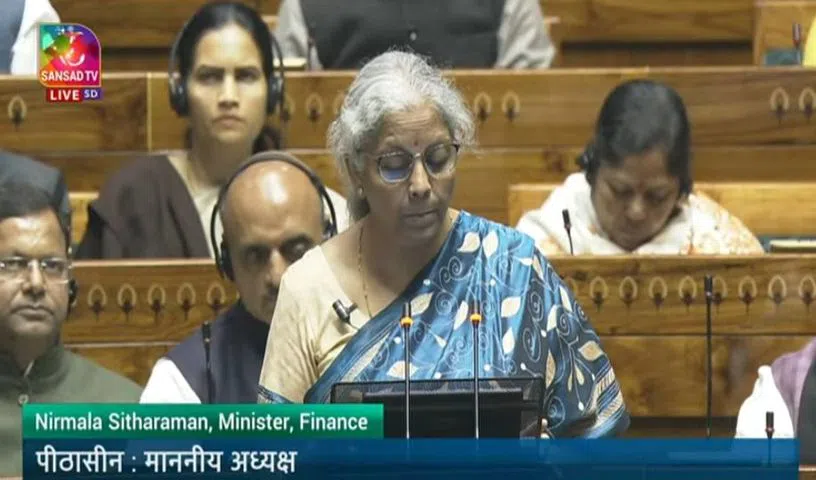Union Finance Minister Nirmala Sitharaman on Thursday hiked capital expenditure by 11 per cent for the next fiscal to sustain world-beating economic growth rate while trimming the deficit in a reform-oriented interim budget that also gave relief to common man from disputed small tax demands of up to Rs 25,000.
Presenting a vote on account or an interim budget for 2024-25, Sitharaman proposed no changes in income tax rates for individuals and corporates, as well as customs duty. In less than an hour-long budget speech, she presented the Modi government’s achievements in the last 10 years that transformed India from being a ‘fragile’ economy to the world’s fastest-growing major economy.
She hiked capital expenditure to Rs 11.11 lakh crore for 2024-25 while trimming the fiscal deficit for this financial year to 5.8 per cent, from the budgeted 5.9 per cent of GDP, and further lowering it to 5.1 per cent in the next fiscal.
Stating that every challenge of the pre-2014 era was overcome through economic management and governance, she said the government, in its July budget, would present a detailed roadmap to make India a developed country.
“Guided by the principle ‘reform, perform, and transform’, the government will take up next-generation reforms, and build consensus with the states and stakeholders for effective implementation,” Sitharaman said in her speech.
The revenue receipts for the current fiscal at Rs 30.03 lakh crore are expected to be higher than the Budget Estimate, reflecting strong growth momentum and formalisation in the economy.
“We continue on the path of fiscal consolidation, as announced in my Budget Speech for 2021-22, to reduce fiscal deficit below 4.5 per cent by 2025-26,” Sitharaman said.
Meeting the needs and fulfilling the aspirations of four “major castes” — the poor, women, the youth and farmers — of the country are the government’s highest priority, Finance Minister asserted and said the government is working with an approach to ensure development that is all-round, all-pervasive and all-inclusive.
“It covers all castes and people at all levels. We are working to make India ‘Viksit Bharat’ by 2047. For achieving this goal, we need to improve people’s capability and empower them,” she said.
There is a need to focus on “four major castes” that are “garib” (the poor), “mahilayen” (women), “yuva” (the youth) and “annadata” (the farmer), Sitharaman said and asserted that their needs, aspirations and welfare are “our highest priority”.
“The country progresses, when they progress. All four require and receive the government’s support in their quest for better lives. Their empowerment and wellbeing will drive the country forward,” the finance minister said in her pre-election budget.
She said that earlier, social justice was mostly a “political slogan”. For this government, social justice is an effective and necessary governance model, Sitharaman said.
“The saturation approach of covering all eligible people is the true and comprehensive achievement of social justice. This is secularism in action, reduces corruption and prevents nepotism. There is transparency and assurance that benefits are delivered to all eligible people,” she said.



